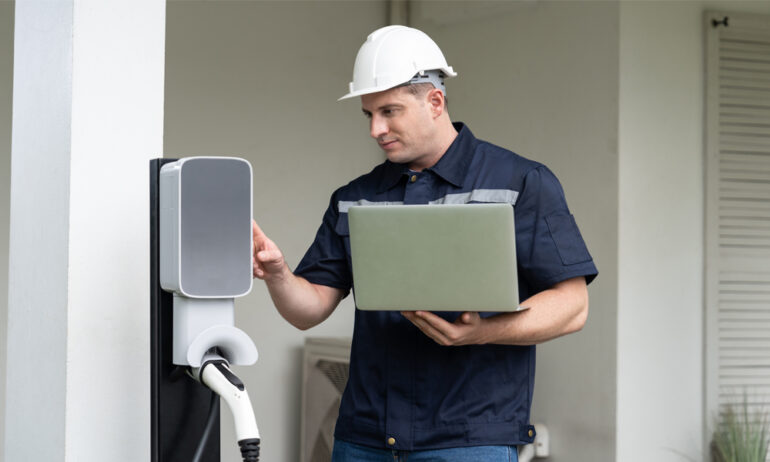If you want to install an EV charger in your home, you’ll probably need to obtain an electrical permit, depending on the electrical codes in your area. For your safety and the safety of the public, it is recommended to have a licensed electrician pull the necessary permits for you, fill them out, and have them approved.
Here’s everything you need to know about when you need a permit to install an EV charger, how to obtain one, how much they cost, and more.
When Do You Need a Permit To Install an EV Charger?
In most jurisdictions, you’ll need a permit to install any new electrical components in your home. You’ll probably need a permit to install a hardwired EV charger or add a new 240-volt outlet in your garage. If you already have a 240-volt outlet, you should be able to install a plug-in charger without a permit.
Read More: Hardwired vs plug-in EV chargers
For example, in Oregon, you’ll need a permit to “install or alter any permanent wiring or electrical devices” or “run additional wiring.” On the other hand, you won’t need a permit to replace an existing doorbell or repair an existing outlet, unless the outlet has ground fault circuit interrupter (GFCI) protection.
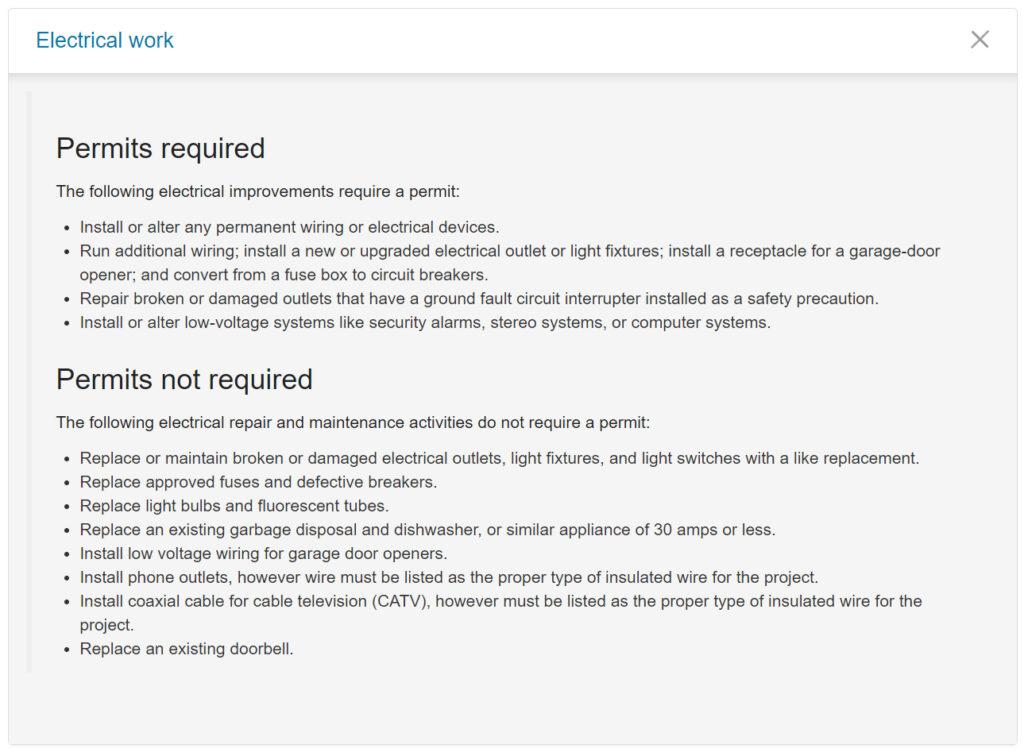
Regulations in each state and municipality are different. So, make sure to contact your local building department or a professional electrician to find out if you need a permit before installing an EV charger in your home. You can find all the laws around EV chargers in your state by checking this site from the US Department of Energy.
What Doesn’t Require a Permit?
You won’t need a permit if you just want to charge an EV with a level 1 mobile connector or a level 2 plug-in charger, as long as you are using an existing outlet. However, most residential homes don’t often have 240-volt outlets installed in garages, so you’ll probably need a permit if you want to install an EV charger in your home.
Read More: Level 1 vs level 2 EV chargers
Even if you already have a 240-volt outlet in your garage, you should still contact an electrician to make sure your home can handle the additional load. The electrical outlets commonly found in homes were not designed to charge electric cars, and low-grade outlets are known to melt when EV charging.
Why Do You Need a Permit To Install An EV Charger?
The purpose of an electrical permit is to ensure that you are following all local safety and proper building codes. Since EV chargers require a lot of power, the permit process is designed to prevent electrical issues that could shock you or start a fire.
Even if you have previous electrical experience, your local jurisdiction might only issue permits to licensed electricians. Electrical permits might require an extensive knowledge of local codes, complicated load calculations, and line-drawn diagrams with symbols that only a licensed electrician would understand.
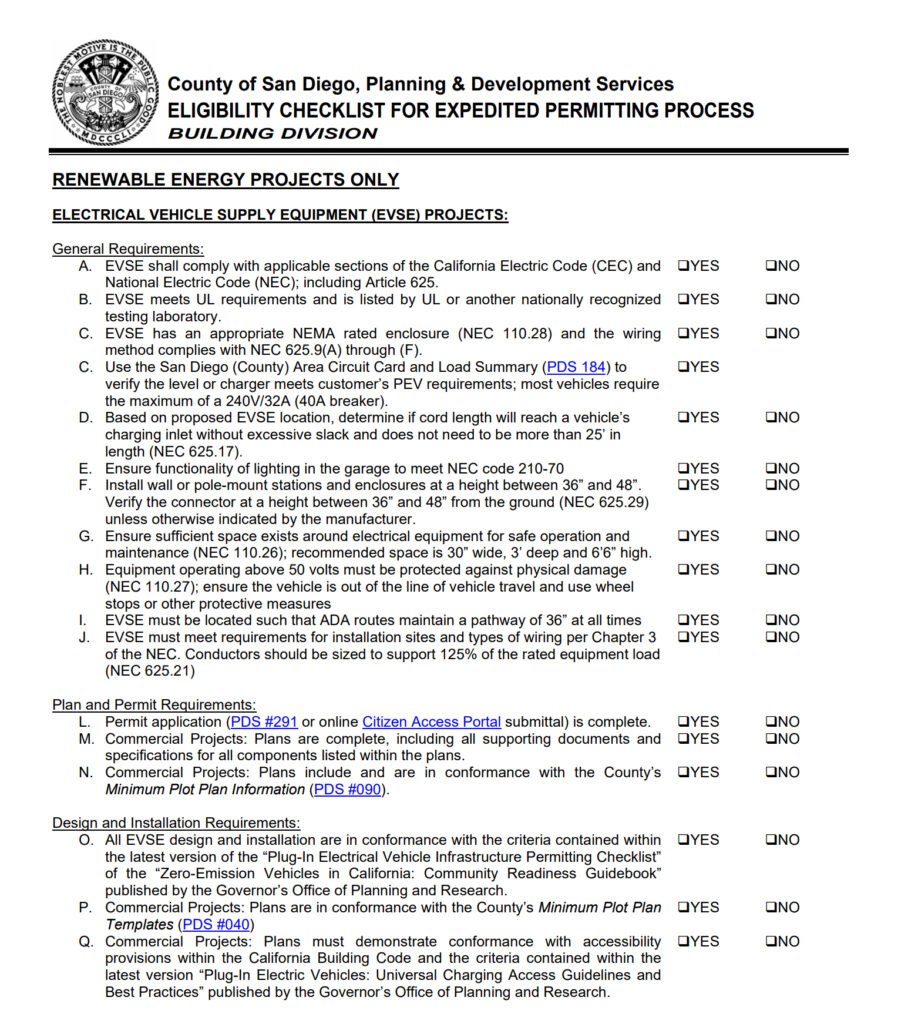
Shortly after an EV charger is installed in your home, you will also be responsible for an inspection to verify that the work was done properly. Without a permit and inspection, you could be liable if a fire breaks out, even if you hired an electrician to do all the work. Plus, doing electrical work without a permit might violate building codes, which could void your home insurance.
If an electrician refuses to pull permits for you, there’s a chance they are not licensed in the state. You can always verify a contractor’s license before they start to do any work by checking your stat license board, like this one from California.
How To Apply for an EV Charger Permit
Electrical permits are usually issued through your local building department, but your city or county might issue permits from a different department. Check your city government’s website to find out how to apply for a permit, but it’s usually easier to just have a licensed electrician pull the permits for you.
How Much Does an EV Permit Cost?
The cost of an electrical permit depends on where you live and what work needs to be done. In small towns, you might not need a permit, or it might be as cheap as $30-$50. In larger cities, especially in states like California, you might need multiple permits that can cost $300-$500 or more in total.
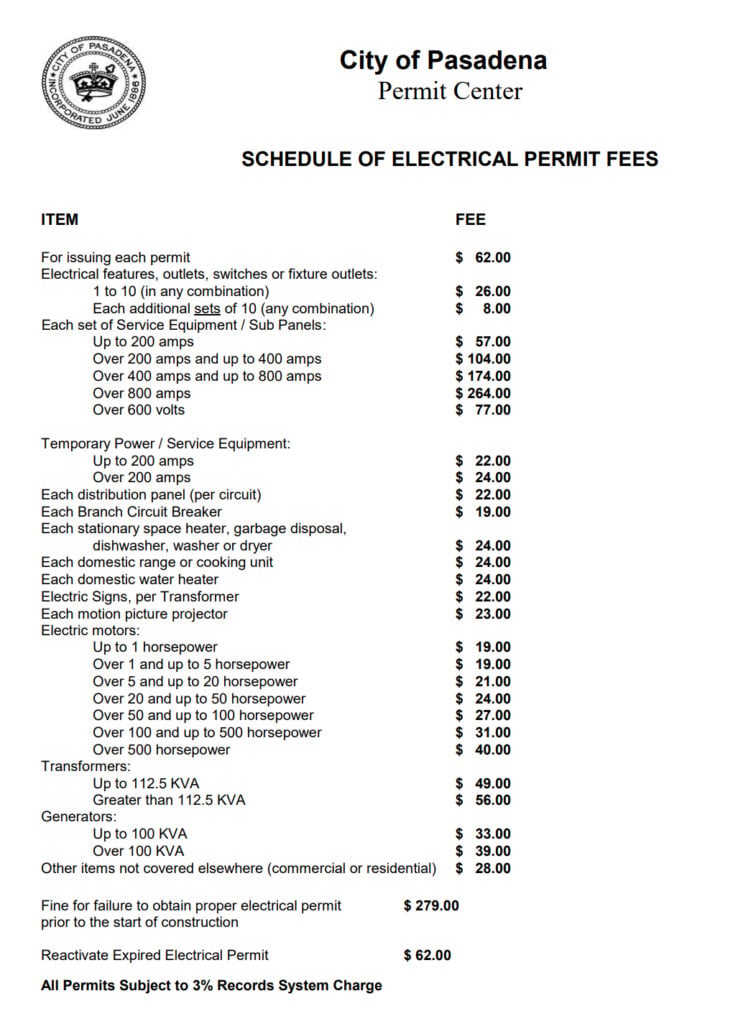
You might even need to get a building permit, depending on the scope of the work that needs to be done. However, you might be able to mitigate the costs with tax credits, depending on where you live. The federal EV charger tax credit will cover 30% of the cost of hardware and installation, up to $1,000.
How Long Does It Take to Obtain an EV Permit?
The time it takes to have a permit approved will vary based on where you live. For example, San Diego residents can apply for same-day permits when installing an EV charger at home. On the other hand, if you live in certain major cities, like Los Angeles or San Fransisco, it could take 3 months or longer to have a permit approved.
California recently passed AB 1236 and AB 970, which require all cities and counties to develop an “expedited and streamlined permitting process for electric vehicle charging stations.” Under this law, you should be able to get a permit for a single site reviewed within 5 days and approval to build within 20 days.
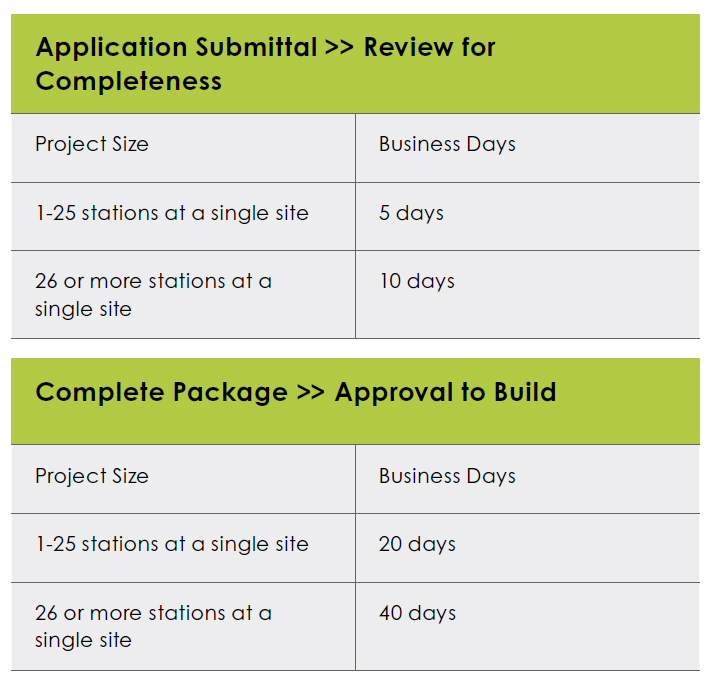
To find out if your city or county has adopted these new policies yet, check out this Streamlining Map of California
If you need any help installing an EV charger in your home, HelloTech can send an electrician to your door to give you a free quote. We can provide an in-home quote in as little as 15-30 minutes, and our technicians can schedule your installation within a week or two of the estimate.
